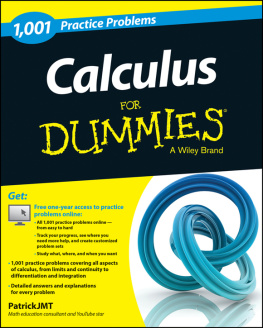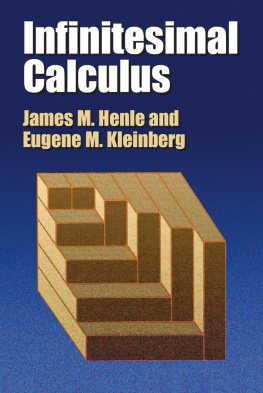it-ebooks - Calculus for Beginners (MIT)
Here you can read online it-ebooks - Calculus for Beginners (MIT) full text of the book (entire story) in english for free. Download pdf and epub, get meaning, cover and reviews about this ebook. year: 2017, publisher: iBooker it-ebooks, genre: Home and family. Description of the work, (preface) as well as reviews are available. Best literature library LitArk.com created for fans of good reading and offers a wide selection of genres:
Romance novel
Science fiction
Adventure
Detective
Science
History
Home and family
Prose
Art
Politics
Computer
Non-fiction
Religion
Business
Children
Humor
Choose a favorite category and find really read worthwhile books. Enjoy immersion in the world of imagination, feel the emotions of the characters or learn something new for yourself, make an fascinating discovery.

- Book:Calculus for Beginners (MIT)
- Author:
- Publisher:iBooker it-ebooks
- Genre:
- Year:2017
- Rating:5 / 5
- Favourites:Add to favourites
- Your mark:
- 100
- 1
- 2
- 3
- 4
- 5
Calculus for Beginners (MIT): summary, description and annotation
We offer to read an annotation, description, summary or preface (depends on what the author of the book "Calculus for Beginners (MIT)" wrote himself). If you haven't found the necessary information about the book — write in the comments, we will try to find it.
Calculus for Beginners (MIT) — read online for free the complete book (whole text) full work
Below is the text of the book, divided by pages. System saving the place of the last page read, allows you to conveniently read the book "Calculus for Beginners (MIT)" online for free, without having to search again every time where you left off. Put a bookmark, and you can go to the page where you finished reading at any time.
Font size:
Interval:
Bookmark:
From: http://math.mit.edu/~djk/calculus_beginners/
The purpose of this chapter is to tempt you into learning some calculus.
1.1
1.2
To study calculus it is essential that you are able to breathe. Without that ability you will soon die, and be unable to continue.
Beyond that, you will need some familiarity with two notions: the notion of anumber, and that of a function.
Suppose I have forgotten everything I ever knew about numbers and functions?
Do not worry. We will review their properties.
And if I know everything there is to know about numbers and functions?
Then you understand calculus already and need not continue.
Before reminding yourself about numbers and functions you might ask the following questions.
What is calculus?
Why should I learn about it?
Calculus is the study of how things change. It provides a framework for modeling systems in which there is change, and a way to deduce the predictions of such models.
I have been around for a while, and know how things change, more or less. What can calculus add to that?
I am sure you know lots about how things change. And you have a qualitative notion of calculus. For example the concept of speed of motion is a notion straight from calculus, though it surely existed long before calculus did and you know lots about it.
So what does calculus add for me?
It provides a way for us to construct relatively simple quantitative models of change, and to deduce their consequences.
To what end?
With this you get the ability to find the effects of changing conditions on the system being investigated. By studying these, you can learn how to control the system to do make it do what you want it to do. Calculus, by giving engineers and you the ability to model and control systems gives them (and potentially you) extraordinary power over the material world.
The development of calculus and its applications to physics and engineering is probably the most significant factor in the development of modern science beyond where it was in the days of Archimedes. And this was responsible for the industrial revolution and everything that has followed from it including almost all the major advances of the last few centuries.
Are you trying to claim that I will know enough about calculus to model systems and deduce enough to control them?
If you had asked me this question ten years ago I would have said no. Now it is within the realm of possibility, for some non-trivial systems, with your use of your laptop or desk computer.
OK, but how does calculus models change? What is calculus like?
The fundamental idea of calculus is to study change by studying "instantaneous" change, by which we mean changes over tiny intervals of time.
And what good is that?
It turns out that such changes tend to be lots simpler than changes over finite intervals of time. This means they are lots easier to model. In fact calculus was invented by Newton, who discovered that acceleration, which means change of speed of objects could be modeled by his relatively simple laws of motion.
And so?
This leaves us with the problem of deducing information about the motion of objects from information about their speed or acceleration. And the details of calculus involve the interrelations between the concepts exemplified by speed and acceleration and that represented by position.
So what does one study in learning about calculus?
To begin with you have to have a framework for describing such notions as position speed and acceleration.
Single variable calculus, which is what we begin with, can deal with motion of an object along a fixed path. The more general problem, when motion can take place on a surface, or in space, can be handled by multivariable calculus. We study this latter subject by finding clever tricks for using the one dimensional ideas and methods to handle the more general problems. So single variable calculus is the key to the general problem as well.
When we deal with an object moving along a path, its position varies with time we can describe its position at any time by a single number, which can be the distance in some units from some fixed point on that path, called the "origin" of our coordinate system. (We add a sign to this distance, which will be negative if the object is behind the origin.)
The motion of the object is then characterized by the set of its numerical positions at relevant points in time.
The set of positions and times that we use to describe motion is what we call a function. And similar functions are used to describe the quantities of interest in all the systems to which calculus is applied.
The course here starts with a review of numbers and functions and their properties. You are undoubtedly familiar with much of this, so we have attempted to add unfamiliar material to keep your attention while looking at it.
I will get bogged down if I read about such stuff. Must I?
I would love to have you look at it, since I wrote it, but if you prefer not to, you could undoubtedly get by skipping it, and referring back to it when or if you need to do so. However you will miss the new information, and doing so could blight you forever. (Though I doubt it.)
And what comes after numbers and functions?
A typical course in calculus covers the following topics:
1. How to find the instantaneous change (called the "derivative") of various functions. (The process of doing so is called "differentiation".)
2. How to use derivatives to solve various kinds of problems.
3. How to go back from the derivative of a function to the function itself. (This process is called "integration".)
4. Study of detailed methods for integrating functions of certain kinds.
5. How to use integration to solve various geometric problems, such as computations of areas and volumes of certain regions.
There are a few other standard topics in such a course. These include description of functions in terms of power series, and the study of when an infinite series "converges" to a number.
So where does this empower me to do what?
It doesn't really do so. The problem is that such courses were first designed centuries ago, and they were aimed not at empowerment (at that time utterly impossible) but at familiarizing their audience with ideas and concepts and notations which allow understanding of more advanced work. Mathematicians and scientists and engineers use concepts of calculus in all sorts of contexts and use jargon and notations that, without your learning about calculus, would be completely inscrutable to you. The study of calculus is normally aimed at giving you the "mathematical sophistication" to relate to such more advanced work.
So why this nonsense about empowerment?
This course will try to be different and to aim at empowerment as well as the other usual goals. It may not succeed, but at least will try.
And how will it try to perform this wonder?
Traditional calculus courses emphasize algebraic methods for performing differentiating and integrating. We will describe such methods, but also show how you can perform differentiation and integration (and also solution of ordinary differential equations) on a computer spreadsheet with a tolerable amount of effort. We will also supply applets which do the same automatically with even less effort. With these applets, or a spreadsheet, you can apply the tools of calculus with greater ease and flexibility than has been possible before. (There are more advanced programs that are often available, such as MAPLE and Mathematica, which allow you to do much more with similar ease.) With them you can deduce the consequences of models of various kinds in a wide variety of contexts.
Font size:
Interval:
Bookmark:
Similar books «Calculus for Beginners (MIT)»
Look at similar books to Calculus for Beginners (MIT). We have selected literature similar in name and meaning in the hope of providing readers with more options to find new, interesting, not yet read works.
Discussion, reviews of the book Calculus for Beginners (MIT) and just readers' own opinions. Leave your comments, write what you think about the work, its meaning or the main characters. Specify what exactly you liked and what you didn't like, and why you think so.

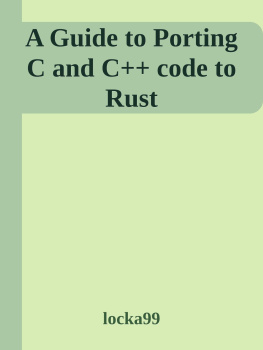
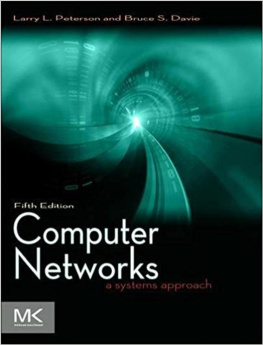
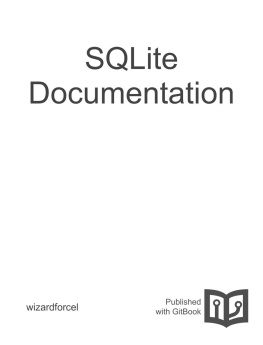
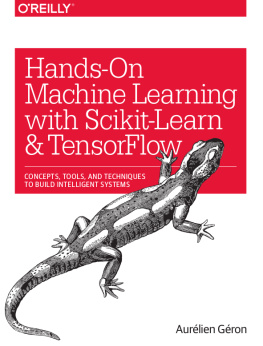
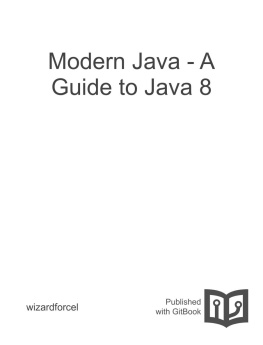

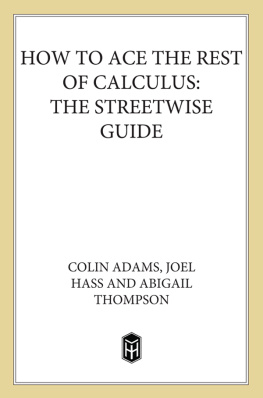

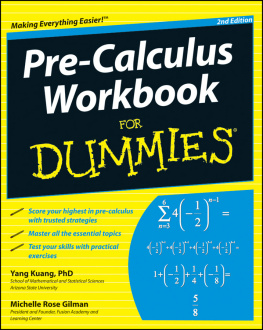
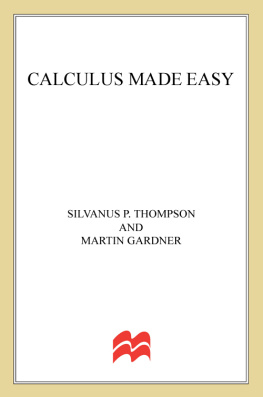
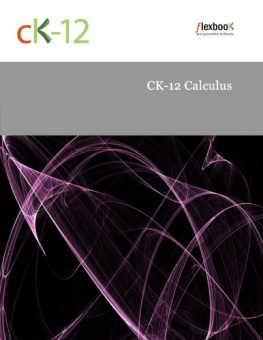
![Chris Monahan [Chris Monahan] - Calculus II](/uploads/posts/book/119088/thumbs/chris-monahan-chris-monahan-calculus-ii.jpg)
